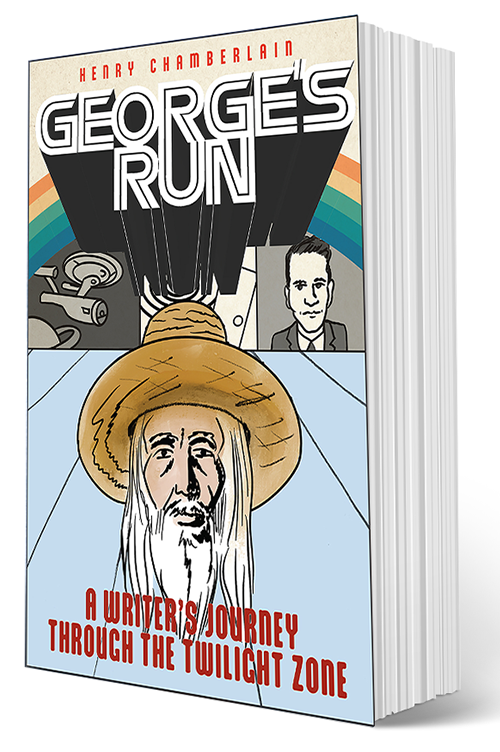The work of Richard Matheson (1926-2013) is certainly suitable for in-depth analysis. It is through an academic lens that you can plumb such insights as the one about the recurring nemesis in Matheson’s groundbreaking novel, “I Am Legend.” As Charles Hoge describes, in this first survey of its kind, the neighbor-turned-vampire who repeatedly taunts the protagonist is part of a literary tradition dating back hundreds of years. Instead of being hidden away in Bavarian castles, vampires were known to call out their victims from their own village. It is a simple distinction like that which Matheson runs with to create one of the most influential books in pop culture.
It was this seismic shift from monsters in castles to monsters in the suburbs that would change everything and influence everyone from George Romero to Stephen King. Yes, you can thank Richard Matheson for the zombie apocalypse. He essentially invented it with his 1954 horror novel, “I Am Legend.” Well, there’s more to it. And you can dig deeper in this first ever substantial study, “Reading Richard Matheson: A Critical Survey,” edited by Cheyenne Mathews and Janet V. Haedicke, published by Rowman & Littlefield.
The original “I Am Legend” novel is an elegant and tightly written work. Our protagonist, Robert Neville, must figure out, with Sherlockian exactitude, what has brought about a world-wide pandemic of vampires. It is a prime example of work from the first phase of Matheson’s career. The theme here is man as victim of his own environment. By the time of Matheson’s work on the landmark television series, The Twilight Zone, his theme has broadened to man as victim of his own making. Within these two themes, a multitude of work can be examined. It is with this survey that we receive an essential collection of serious thought on a writer who Stephen King has ranked with Poe and Lovecraft.
In a piece that focuses on the noir character of The Twilight Zone, Cheyenne Mathews demonstrates both Matheson’s artistry and how well The Twilight Zone holds up to critical scrutiny. Cheyenne writes: “Through science fiction tropes of time travel, alternate realities, and new technologies, Matheson emphasizes the physical and social displacement that afflicted both men and women during the attempted postwar return to normality.” And, in describing what is considered the most noir Twilight Zone episode, “Night Call,” Mathews writes: “The second act of the episode conflates Elva’s personal anxieties with her social alienation, as she becomes increasingly disconnected from the other characters, who attempt to downplay her distress.” Of course, there is Matheson’s most celebrated TZ episode, “Nightmare at 20,000 Feet,” but, as Mathews makes clear, it is part of a bigger picture. Outside of Rod Serling, who wrote the majority of scripts, Matheson wrote the most episodes and they were all gems.
A man of his time, and ahead of his time, Richard Matheson has secured a place for himself within not only great science fiction, horror, and fantasy, but great fiction in general. Ultimately, Matheson’s work strikes a universal chord. We can explore the specific era he worked in and how he spoke to concerns of postwar paranoia and shifting gender roles; and, like Kafka, we can place him within some of the most eloquent writers on the human condition. Matheson was weary of being labeled a genre writer. Perhaps one of his fellow writers and friends, George Clayton Johnson, summed it up best when he said of Matheson that he was one of the “serious storytellers whose works were artful gems of wisdom fiction.”
“Reading Richard Matheson: A Critical Survey” is essential reading for anyone interested in understanding the origins of today’s pop culture at a deeper level and gaining a greater appreciation of the work of Richard Matheson.
“Reading Richard Matheson: A Critical Survey” is a 262-page hardcover published by Rowman & Littlefield.












Matheson’s one of my faves. 😀
Yes, one of the greats.
Niceeee 😊
I think it’s a book a whole lot of fans will want to pick up. I really enjoyed reading I Am Legend. I’m looking forward to other Matheson titles I’ve been meaning to read.
Nice piece Henry, I’m a big fan of Matheson’s work from his contributions to Twilight Zone to The Incredible Shrinking Man and Steven Spielberg’s first film, Duel. Merry Christmas Henry!
Everything I’ve read of his work has amazed me and I still have more to read.
hello henry chamberlain its dennis the vizsla dog hay that i am legend is kwite a buk dada sez!!! aparently they keep mayking dokyoomentareez owt of it but hav yet to git it eksaktly rite altho dada did like the will smith verzhun he sez it wuz a kompleetly diffrent storry and they just borrowd the naym go figger!!! ok bye
Dennis, I think you’d be interested in the dog from the original novel. And, even though they did change things up quite a bit, I think you’d enjoy the dog in the Will Smith movie!